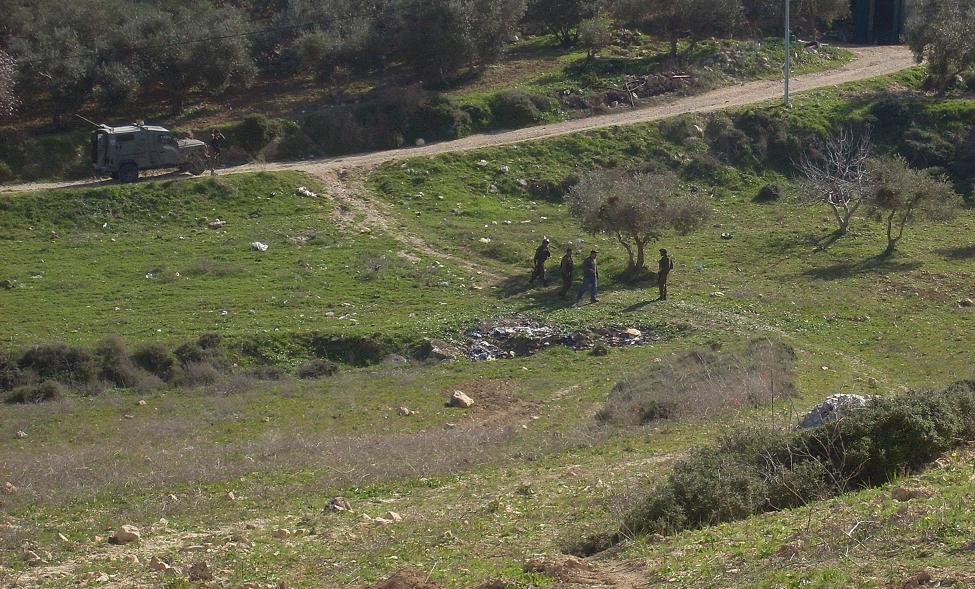Tag: Bracha Settlement
-
Settlers from Bracha attack and harass farmer on his land
13th June 2013 | International Solidarity Movement, Nablus Team | Al Rujeib, Occupied Palestine On Friday 7th June five settlers from the illegal settlement of Bracha attacked a farmer on his land, using sling shots to throw stones at him near Huwwara checkpoint. The same settlers continued to harass the farmer in the following days…
-
Big punishments for small hopes
by Haroun Zeitoun 26 January 2013 | International Solidarity Movement, Burin, Occupied Palestine This morning in Burin, the village that sits in the valley between the Yizhar and Bracha colonial settlements just south of Nablus, saw a small yet high-spirited group plant olive trees. The task was done within an hour and afterwards international activists…
-
Night raids and arrests continue in Burin
By Alma Reventos 25 August 2012 | International Solidarity Movement, West Bank On Thursday August 23, Mumen Mahmoud Raja, 18, was arrested at his home by Israeli occupation forces at 2:30 a.m. Around 2 a.m., some 60 Israeli forces invaded the Palestinian village of Burin, located south-west of Nablus. They arrived in 6 military jeeps,…


